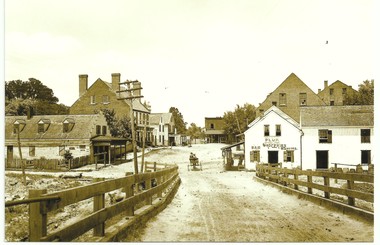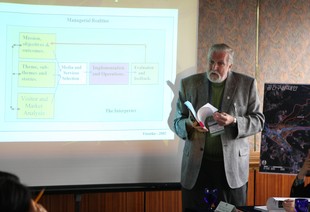John Veverka & Associates
Main menu:
- Home Page
- Our Range of Services
- Interpretive Coaching
- Interpretive Planning
- Interpretive Plan Outline
- Interpretive Training
- John Veverka Resume
- NEW Advanced Interp. Text Book
- InterpNEWS
- Library
- JVA NEWS, Courses and Updates
- Certificates
- Planning/Design of Interpretive Panels
- Interpretive Writing
- Interpretive Writing Course
- Interpretive Trails Course
- Interpretive Panels Course
- Introduction to Heritage Interpretation Course
- Interpretive Planning & Design of Marketing Brochures Course
- Training for Interp. Trainers
- Interpretive Exhibits Course
- Interpretive Master Planning Course
- Interpretive Planning for Scenic Byways.
- Critiquing and Coaching Interpretive Staff
- Advanced Interpretive Planning
- Interpretive Training Center Course Catalogue
- Interp. for International Visitors course.
- Interpretive Exhibits Evaluation
- Interp. Center Feasibility Analysis Course.
- Interp. for Commercial Tour Providers
- Interpretive Researchers Guide for Visitor Studies
- Interp. Planning for Historic Homes
- Heritage Interpretation Training Center
- Interpretive Planning for Botanical Gardens
- An introduction to planning and presenting live interpretive programs and tours for Museum/Heritage Site Docents and Volunteers.
- Developing Marketing Plans for Heritage & Tourism Sites and Attractions
- Interpretation Book Store
- Heritage Interpretation Resource Center
- Interpretive Planning for Historic Farms
- Developing Successful Partnerships
- Developing Interpretive Outreach Programs
- Community Interpretation Planning
- Interpreting Gravestones and Historic Cemeteries
- Using Interpretation to Accomplish Management Objectives.
- An Interpreters Guide for Survival Economics.
- Innovative Strategies for Interpretive Media and Services Planning.
- A Curators Guide for Developing Gallery Tours.
- Advanced Interpretive Writing - Technical Publications
- Advanced Interpretive Services for Managers, Supervisors, Team Leaders and Sr. Staff.
- Advanced Interpretation for Chiefs of Interp. - Interpretive Managers - Regional Interp. Specialists
- Interpreting Critical Issues.
- Developing Commercial Interpretation for Resorts, Cruise Ships, Campgrounds and Tourism Attractions.
- Planning and developing a new commercial tour guiding business.
- Interpretive Evaluation, Visitor Studies and Site Assessment Center
- The Center for Interpretive Planning Advancement & Excellence.
- Developing Requests for Proposals (RFPs)
- Planning and Facilitating Focus Workshops
- Planning for Interpretive Experiences
- 40 Years a Heritage Interpreter
- Interpretive Techniques - The Rest of the Story Course
- Certified Professional Interpretive Planner Certificate
- Certified Professional Interpretive Program
- Certified Professional Interpretive Writer certificate program.
- Visitor motives for attending interpretive programs.
- Exhibit Rehab Course
- Developing Training Workbooks & Manuals
- Planning for Railroad Museums and Sites.
- Climate Change Interpretation Course.
- When there's nothing left but the story - interp. storytelling.
- Interpreting Legends Myths and Fables
- InterpSHARE - Seminars 2022
- Interpreting Invasive Species
- Interpretiing Edible Insects
- Interpretaive Planning for Climate Change
- HITC Climate Crisis Resource Center
- PUP Members Only
- Starting a new Interp Consulting Business
- Panels 4 Week Course
- Interpretive Writing - 4 Week Course
- Marketing - 4 Week Course
- Intro to Interpretation - 4 Week Course
- Interp Climate Change - 4 Week Course
- Exhibit Rehab 4-Week Course
- Level 1
- Johns Interpreters Blog
- John Interpreters Blog 2
Community Interpretation Planning
Developing and Managing Community Interpretation Plans and Programs.
Historic Street Scene - from Falmouth VA Community Interpretation Plan.
12 Units - 2 CEU credits.
Course Tuition: $300.00
Are you ready for e-LIVE interpretive training? The Heritage Interpretation Training Center is pleased to announce our most recent e-Live interpretive training course for 2016.
This is a University level course based on years of actual interpretive consulting work including planning projects for developing community interpretive plans for historic towns/villages and various historic districts.
Who is this course for:
-Interpretive planners and heritage tourism development specialists charged with developing
interpretive plans and tourism opportunities for historic communities and historic districts.
- Individuals or community leaders interested in developing heritage interpretive experiences for their town, village, historic district or community for heritage tourism and economic development goals.
Course Goals: Upon completion of this course participants will:
- Have a working knowledge of Tilden's Interpretive Principles.
- Have a working knowledge of the Model of Interpretation Planning.
- Will have developed proficiency in developing an interpretive planning document for community interpretation to be used for both short term and long term tourism development and marketing.
- Will have developed a working draft of their community interpretation plan.
Check out my YouTube video about the course: https://www.youtube.com/watch?v=RQhzVgzsKxc
About the Instructor: Prof. John Veverka

- B.S and M.S in Heritage Interpretation - The Ohio State University
- Ph.D. program in Interpretation at Michigan State University. Taught introductory and advanced interpretation courses at MSU for 5 years.
- Adjunct Professor Heritage Interpretation (summer heritage tourism institutes) North Carolina State University, New York State University.
- NAI Certified Interpretive Planner and Trainer
- NAI Fellow
- Certified Professional Heritage Interpreter (Canada).
- Author of several interpretive planning/training college text books.
- Publisher of InterpNEWS - the International Heritage Interpretation e-Magazine.
- 40 years of interpretive planning, training and writing experience.
John is currently - Senior Instructor, Kansas State University - Global Campus (Interpretive Planning), as well as Director of the HITC and president of JVA consulting.
How does e-LIVE work?
Our e-LIVE courses are limited to 10 participants at one time, to allow for maximum interaction with the course instructor. Once one participant completes the course another participant can be added.
- You'll be given course content to read and interact with for each of the 12 units.
- We will provide you with reading assignments, text book and reference articles as part of the course that you keep for your library.
- You'll be given a development assignment for each unit which you'll send to John for review, comments and coaching as needed. You'll be able to talk with John about each assignment via SKYPE, or by e-mail or phone. Thus the e-LIVE opportunity. John will be your instructor and coach who you can talk with at any time about your assignments. Remember that John is in Michigan (Eastern Time Zone), so it's best to e-mail John to set up a time to chat.
- When you've completed each course unit you'll be sent the next unit for the course. Again, you'll be given assignments for that unit to submit to John for review, comments and coaching.
- When you've completed all 12 units you'll be awarded a Certificate of Completion and 2 CEU (Continuing Education Unit) credits.
Additionally, you can work on actual projects you may be working on for your community interpretation programs. That is the benefit of e-LIVE - we are flexible in designing the course to meet your real-world needs.
The estimated completion time of the course is up to you as you can work through the courset your own pace.
Developing and Managing Community Interpretation Programs Course Units:
Unit 1. Defining the scope of your "community" (city, small town, historic district, etc.).
Unit 2. Community participation assessment and potential partners.
Unit 3. Community focus workshop sessions and community engagement.
Unit 4. Developing the operational policies for your community interpretation program.
Unit 5. Community interpretive services management - who's in charge?
Developing your community interpretation plan.
Unit 6. Community interpretive services resource inventory (what will you be interpreting? - Churches, historic architecture,
historic personalities or events, cemeteries, vistas or viewpoints, cultural experiences and art?)
Unit 7. Developing your main community interpretive services theme and interpretive bjectives.
Unit 8. Developing your market analysis - who will your audiences be? Local residents, tourists, topic specialists, tour busses,
school groups? What are the benefits for visiting your community will you be developing and promoting?
Unit 9. Developing your individual community interpretive site/resource story development form for each resource you plan to
interpret to visitors.
Unit 10. Developing your interpretive media options (walking tour brochures, cell phone interpretation, interpretive panels and historic markers, live guided walks, tours or programs, etc.)
Unit 11. Evaluation and pre-testing your interpretive media - are your objectives being accomplished?
Unit 12. Marketing your community interpretation offerings and experiences.
If you're interested in this course and would like to enroll in it - send an e-mail to John at: jvainterp@aol.com for a registration form. If you have any questions at all feel free to ask. Then return to this page to pay for the course tuition below.
Prof. John Veverka
JVA Heritage Interpretation International Training Center
Interpretive Training Division
jvainterp@aol.com
SKYPE: jvainterp